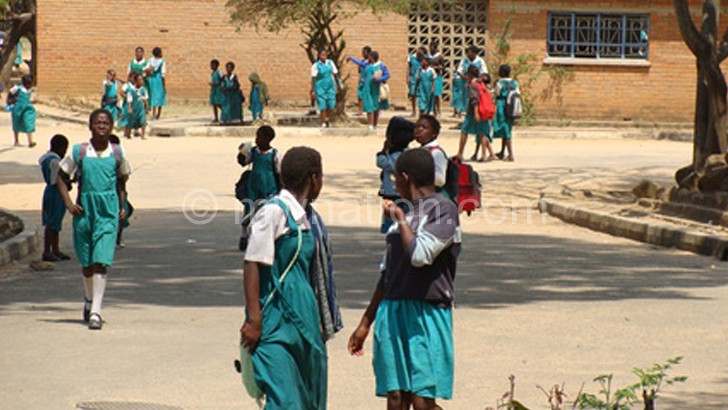Kachindamoto inspires Karonga chief
She is a global icon, a somewhat fearsome chief famed for opening a new realm of possibility for young Malawians saved from marriages.
Ngoni chief Kachindamoto may be a fierce terminator of the rampant early marriages, but she calmly offers fellow traditional leaders numerous lessons on what not to do; as for the Malawian pupils, she urges them to discontinue marrying before their 18th birthday.

When chiefs from Karonga called on her headquarters in Dedza this month, she kept smiling while insisting that they should not leave without eating, urging against complacency and ensured they did not depart without the food for thought that has earned her massive recognition locally and internationally.
Chief Kilupula was leader of the delegation which also visited former safe motherhood champion Senior Chief Kwataine in the same district and Traditional Authority Sawale in Balaka.
He reports hearing Kanchindamoto challenge them: “You have the power to put a stop to this neglected crisis. You can do it by working together with your people to confront it instead of betraying the children by keeping quiet, perpetrating or tolerating practices that endanger the futures of girls.”
Shocked by 12-year-olds trapped in early marriages, Kachindamoto has liberated about 850 children from marriage and booted four village heads in the past 13 years.

Kilupula, leading the bus load of village heads, clergy and government officials to Kachindamoto’s foothold, returned with limitless superlatives and verve.
“Kachindamoto is a superwoman, a nonsense leader who has reclaimed hundreds of boys and girls, sending them back to school. She is building a new chapter of child protection by working together with her subjects, religious leaders, mother groups and other stakeholders. Whoever doesn’t comply is booted out. We can do the same to protect the girls,” he said.
United Nations Population Fund ranks the country eighth among 20 nations said to have the worst rates of early marriages.
In 2012, the UN agency found that one in two Malawian women were married before 18, the legally marriageable age.
Money trickling down from fishing, farming, street vending, cross-border trade, sex work and long-distance trucking lure Karonga girls to get pregnant as early as age 12, according to district youth office.
The lessons from Kachindamoto have persuaded the traditional leaders from Karonga to sign contracts guiding the fight against harmful practices that push girls into the high-risk marriages and pregnancies.
They include kupimbira, a clandestine cultural practice in which parents marry off girls as collateral for loans as low as K5 000, as well as the misuse of dowry to exchange school-going girls with cows and money.
“When some parents see girls, they see money and they will do anything to get it as fast as they can,” said Kossam Munthali, executive director of Foundation for Community Support Services which worked with Paramount Chief Kyungu in organising both the trip and the signing ceremony.
In Kilupula’s territory, Eliza, 15, needed a ceasarian operation to deliver the baby she was seen breastfeeding.
She rues forced marriage.
“When my chest started bulging, my aunt said I was ready to marry. In December, I almost died giving birth because my body was not fit for the baby,” she explained.
Kilupula promised to be vigilant in reversing the trend, saying the contracts empowers them to liberate the boys and girls regardless of who is driving them into it. Focus is running a K1.3 billion maternal and child health programme funded by UKAid through Christian Aid.
Munthali expects the renewed commitment to be a game-changer. Presently, teen pregnancies account for the majority of maternal complications and deaths in the districts constrained health facilities that will be partly face lifted under the project reaching out to children, girls and women.
“The traditional leaders are not only expected to raise awareness or to demand transparency and behavioural change from their people, but to be in the forefront safeguarding the children and start leading by example,” he said.
The new consensus makes it a crime for chiefs to marry or bed underage girls, creating a pyramid of power where families account to lower leaders who will in turn account to higher powers all the way to Kyungu.
The brains behind the new agenda hope to replicate Kachindamoto’s story by creating a society where families and opinion leaders start confronting sexual taboos, keep girls in school until they are old enough to marry, ensure men and women support each other throughout the maternal cycle and ensure even those with influence face justice for enticing girls into risky sexual affairs.
“This change must begin from household level to powers above. We don’t want them to be change agents for others, but for themselves,” Munthali says.
He wants the traditional and religious leaders to record and share the number of children redeemed from illegal marriages.
Traditional leaders are often used as eminent voices against risky sexual relationships, including early marriages, but the ambassadors tend to become mere orators and signposts, not doers of their words.
They must start transforming the institution of chieftaincy.
Kilupula said: “When leaders are not doing their job, we will take them to task. If they are in the forefront seducing the children they are expected to protect, we’ll not use bylaws, but report them to police right away.”
Emulating Kachindamoto, they seem determined to save girls from the ills by keeping them in school, re-enrolling youthful mothers and creating a conducive environment to make their dreams come true. n





